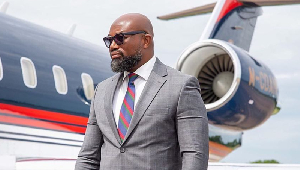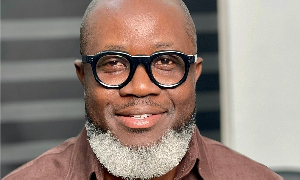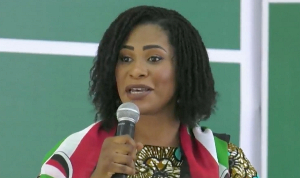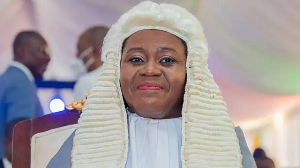As Ghana welcomes Israel and the Libyan National Transitional Council… (Part III)
By Dr. Michael J.K. Bokor
E-mail: mjbokor@yahoo.com
Saturday, September 10, 2011
Despite the savagery against dark-skinned Africans, all hope is not lost for them in Libya. They still have a role to play in the diverse sectors of Libya. The government must take advantage of this situation to create a labor pool and a reliable database for all Ghanaians who may want to go to Libya for work purposes. As is done in other countries that rely on their citizens working in other countries, the Ghana government can streamline matters with a clear-cut mechanism to support prospective job-seekers and create channels through which to monitor their status in Libya.
Creating opportunities to benefit from international diplomacy Official avenues for the supply of workers can also be established and some channels created for earning revenue from the export of such workers. If we consider the streamlined manner in which Ghanaian soldiers serving on UN Missions are mobilized and deployed to earn money for themselves and the country, we should be encouraged to establish such a pool to provide the labor force for countries needing the services of Ghanaian workers.
Such a mechanism should make it possible for the government to intervene in a more organized and proactive manner if there is any future crisis in such a country hosting Ghanaian workers than the haphazard manner in which the evacuation took place during the Libyan conflict. So, from what has happened over the past few days, we have every right to say that the government is doing well in extending Ghana’s arms to countries that have the potential to support our development efforts. While welcoming this move, it is important for the government to turn attention to Ghana’s own diplomatic missions, clean the stables, and ensure that they play roles other than being subservient to the host countries and mismanaging affairs to the detriment of their own nationals in those countries.
It is important that these missions be re-oriented to serve Ghana’s interests in a more productive way. For instance, the trade and economic sections of these missions can do better than what they are known for. They seem not to know the importance of vigorous and proactive diplomacy and don’t make their presence felt in any way. They have found comfort in restricting themselves to archaic means of performing functions and don’t “sell” Ghana as should be the case. Our diplomats and the staff don’t perform efficiently to justify the huge expenditure made on them. The question is simple: How much revenue do they generate at all? Or are they there just to depend on the sweat, toil, and tears of the poor Ghanaian tax payers without doing anything to be self-supporting to an extent while creating favourable conditions for the country to profit from their work overseas?
The time has come for the government to redefine the scope within which the country’s foreign missions function. The recent negative reports about happenings in some of those missions (Dr. Seth Koranteng in Russia, others in Spain, Japan, Italy, etc.) indicate that some of these missions aren’t performing creditably; and something drastic must be done to keep them on their mettle.
We hope that with the new wind blowing in our diplomacy, the interests of the country will be placed above selfish personal ones. Ghana stands to gain a lot from an international diplomacy that is based on sound principles and unquestionable performance.
Operating a foreign policy th at fits into the parameters of the continental African Union and global United Nations provisions on inter-stated relations, Ghana has over the years behaved well and earned much respect for itself. Its vigorous stance of non-aggression against its neighbours, non-interference in the internal affairs of other countries, and contributions to peace keeping operations are commendable. Ghana is well respected for its immense contributions to peace-making efforts in the West African sub-region (through ECOMOG) and through peacekeeping elsewhere on the continent (the Congo Crisis in the early 1960s and the current operations in Darfur and Somalia) as well as worldwide (in UNIFIL, Kosovo, etc.).
These efforts are not aimed at merely making Ghana’s presence felt in global affairs but also directed at reinforcing world opinion about the country’s choice of non-aggression as the best method for conflict resolution. In pursuit of that agenda, Ghana has demonstrated much goodwill and unquestionable commitment to the ideals and objectives of the credible institutions that it is part of.
It is for this commendable role in international diplomacy that Ghana must do all it can to maximize profits. The government has taken a wise step and must pursue its agenda to the full
Opinions of Tuesday, 13 September 2011
Columnist: Bokor, Michael J. K.














